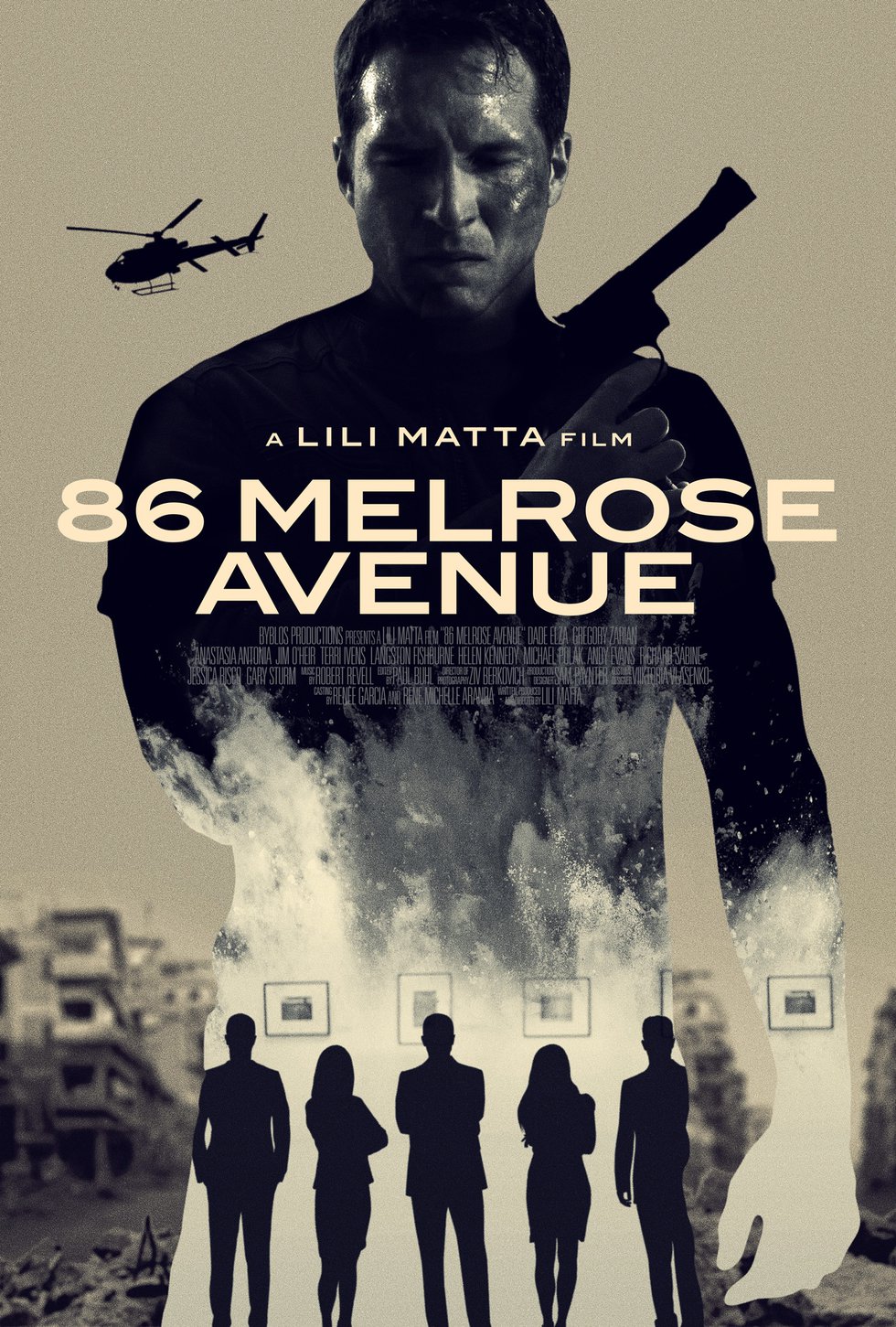A sort of wannabe Dog Day Afternoon for the posh millennial LA art-world set, 86 Melrose Avenue has high ambitions to be a psychologically sophisticated hostage drama but lacks the acting, directing, and writing chops to pull such a grand scenario off convincingly.
The tonal discrepancies in the film are so jarringly wide—oscillating abruptly from an almost satirical flippancy to deadly seriousness throughout—that the gravely serious points it tries to make about the hidden demons that can torment even the most seemingly well-adjusted person often get lost amid incredibly bad dramatic choices and misplaced priorities when it comes to foregrounding the most important themes of the film.
On the one hand, we’re introduced to Travis (Dade Elza), a PTSD-ridden Iraq War vet-turned-plumber who, one night at dinner with his annoying wife, freaks out and guns down a chatty hipster dinner guest—a high school friend of his wife’s—for his ridiculous comments about how the Iraqis owed America thanks for liberating them from Saddam Hussein. Shocked by his own overreaction, Travis then proceeds to run to the nearest posh art gallery and hold its eclectic clientele hostage, including the Lebanese photographer (Anastasia Antonia) whose snooty exhibition is inconveniently interrupted by a crazed gunman.
The owners are portrayed not only as middle-aged gay-male stereotypes but also as snotty, pretentious, coke-addled art-world stereotypes. Along the way, the filmmaker makes admirable but ultimately failed attempts to peer into the dark corners of each hostage’s psyche: as if to say, well, maybe this screwed-up Iraq War vet is severely traumatized, but hey, hoity-toity artists and patrons of the art world have their own valid traumas to deal with, too. In fact, the film seems to envision only one tragic route to effectively dealing with the sort of trauma Travis is suffering through.
The real problem that eventually dooms this well-intended project is its attempt to be anything more than a nail-biting hostage drama: instead, it wastes its limited energies on trying to be a heavy art-world satire, a commentary on the world political situation, as well as a psychoanalytically astute straight-ahead thriller. Optional.



